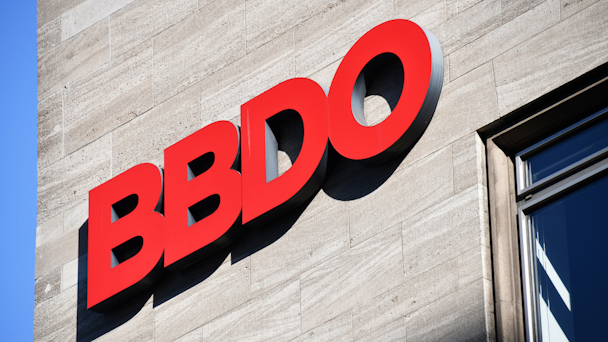‘We get to something interesting, faster’: BBDO is using AI to write better briefs
The agency says that generative AI platforms are helping its employees uncover strategic insights and inspire clients.

BBDO has, along with many other major marketing agencies, begun to experiment with generative AI in recent months. / Adobe Stock
The drafting and delivery of briefs, as any experienced marketer will understand, are critical steps not only in the execution of a particular project but also in cultivating a productive agency-client relationship. A properly constructed brief is more than a mere project outline: it’s a declaration of unified purpose –proof that the agency and the prospective client are, in an important sense, speaking the same language and sharing the same vision.
Advertisement
It’s critical, therefore, for agencies to fine-tune the language that they include in a brief. This is often a subtle and delicate task, one that until very recently has been entrusted solely in the hands of human beings.
BBDO sees generative AI models like ChatGPT and Google’s Bard as capable of ushering in a new paradigm when it comes to drafting briefs.
The agency is currently integrating these text-generating generative AI tools at multiple stages of the brief development process. The first is the early analysis stage: researching to discover a new commercial opportunity. For example, says BBDO New York’s chief strategy officer Nicole Granese, rather than spending hours poring over the annual reports of a client and its competitors, the agency “could easily take those annual reports, put them into a generative AI tool, ask for a comparison of the different brands and it’ll deliver it in five seconds … that helps accelerate our strategy analysis; we’re able to get to something interesting, faster.”
The technology is also helping the agency identify some of the common tropes associated with a particular brand or demographic – so that they can be avoided and serve as guardrails for a more original route. Granese says that ChatGPT, prompted to enumerate some personality quirks among “millennial DIYers,” might respond by writing that this demographic is “‘really into personalization – they want to personalize everything to reflect their unique tastes and perspective.’” At this point, Granese says, her team can respond by asking: "‘Okay, great, but why?’ Or, ‘Well, if everybody else in the category is going to be talking to millennials about personalization, is that really the right approach? How do we get to something different?’”
Tired clichés, in other words, can point the way to exciting originality. “From a strategy perspective, uncovering the expected is actually the opposite of finding a real insight,” Granese says. “The best creativity isn’t about the expected, it’s about breaking [past] that expected. That’s what makes you stand out.”
She’s also careful to point out that her team is highly sensitive about which kind of information it feeds into a generative AI model. “As we’re utilizing [generative AI models], we’re very focused on publicly available data only – we’re trying to avoid that Samsung situation where any private or proprietary information would go in,” she says, referencing an incident within the electronics giant earlier this year in which a group of employees leaked sensitive company data to ChatGPT, sending it to OpenAI’s servers; Samsung reportedly banned the internal use ChatGPT following the blunder.
While BBDO is exercising caution around its use of generative AI – as are many other agencies, as the technology’s ethical and legal dangers come increasingly to the fore – it remains open to experimentation. It’s for this reason that some within BBDO bristled at a media report earlier this year, which cited an internal memo from the agency’s CEO Andrew Robertson and included an image of the its logo with the “O” encircling the letters “AI,” which were crossed out, suggesting, it seems, that the agency was against the use of the technology altogether. “At the end of the day, we’re just trying to be a responsible company,” says Olivia Dames, BBDO’s executive vice-president and global communications director.
The development of an effective brief requires more than just careful analysis – it also needs to resonate emotionally with its audience. This latter task is arguably far more difficult to achieve; while data can be reliably measured and collated, emotions are often nebulous and slippery.
Granese says that machines can nonetheless help spark some emotive force within a brief. “We’re using AI... to make our briefing documents more inspiring,” she says. “Yes, we need a clear, concise and provocative brief, but we also need to inspire our creative teams – get them jazzed up by the key message.”
To that end, her team will use image-generating AI models such as Google's Imagen “to visualize a metaphor… or visualize that feeling that we want the brief to capture.” They’ll also use text-generating models “to write a poem or a song to inspire a team.” AI-generated additions like these can, in her view, strengthen a brief by adding a measure of playfulness.
“One of the challenges of [pitching an idea to a client] is that you have a vision of what someone’s brand can be, what it can become and where you can take it in the future. But often, that vision is tough to get across because you haven’t created the thing yet – you haven’t created the amazing film, you haven’t created the amazing app… [generative AI can] help someone to visualize what you’re talking about, to feel what it potentially could be.”
For more on the latest happenings in AI, web3 and other cutting-edge technologies, sign up for The Emerging Tech Briefing newsletter.

